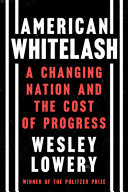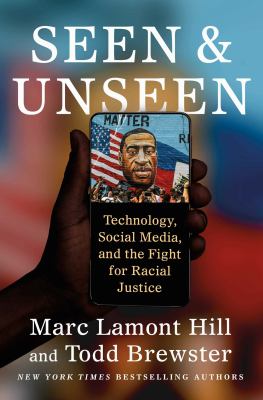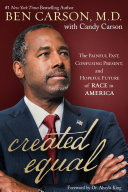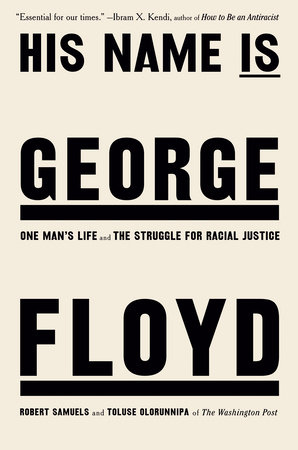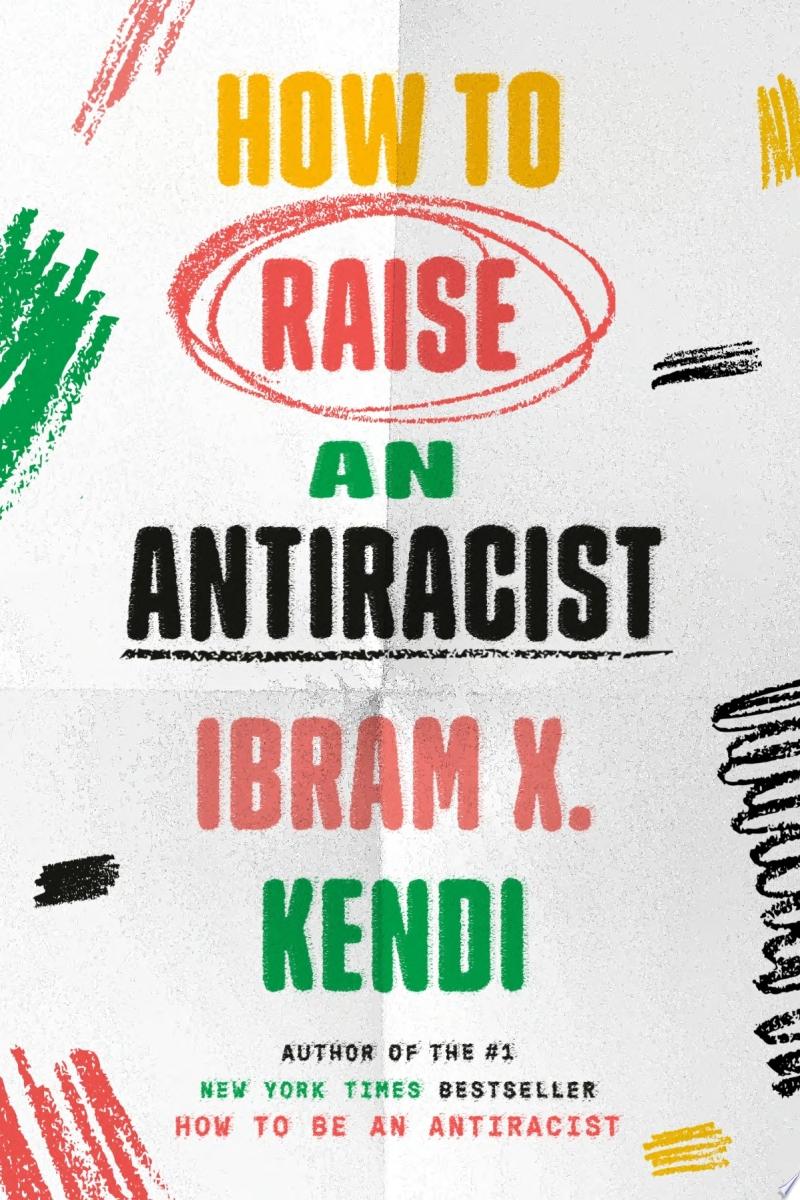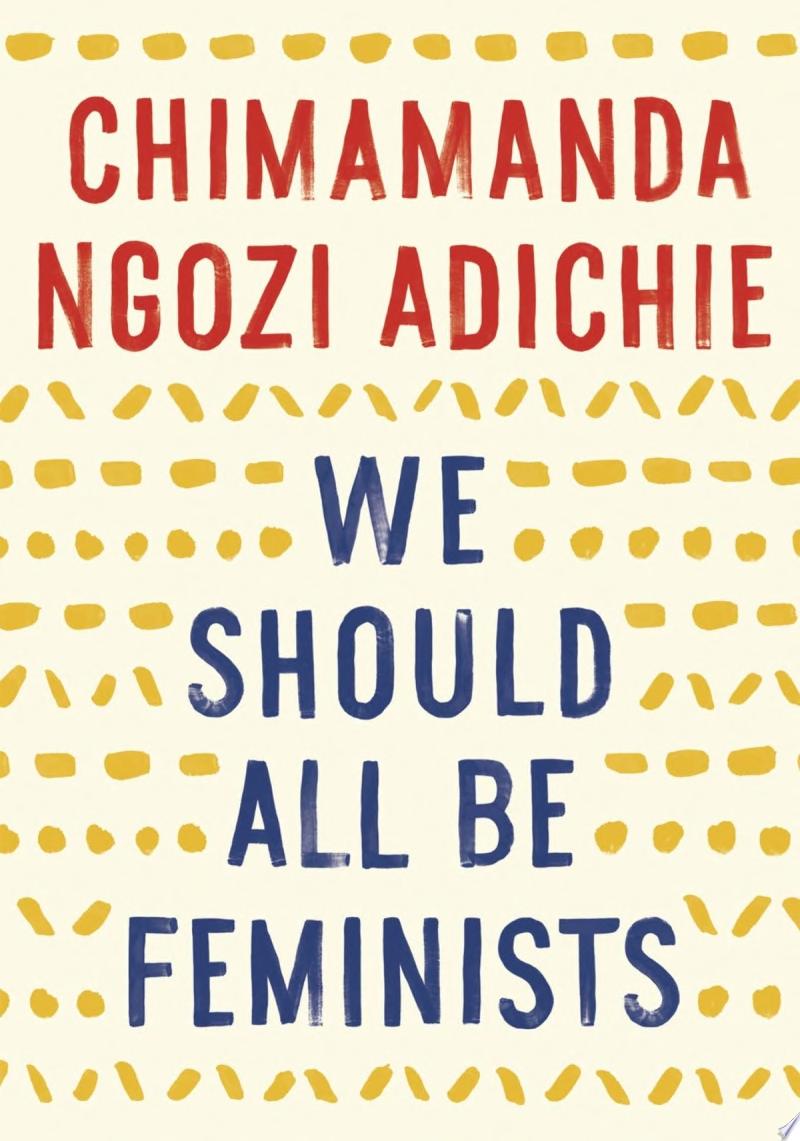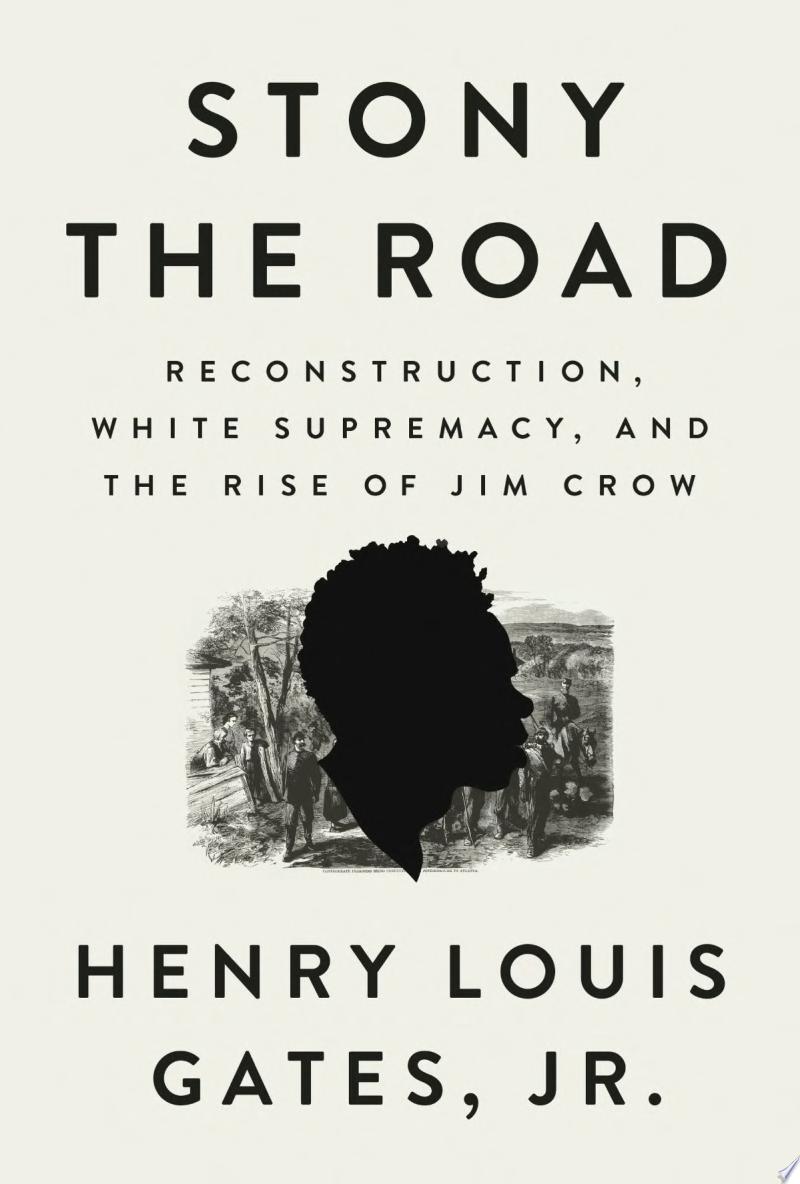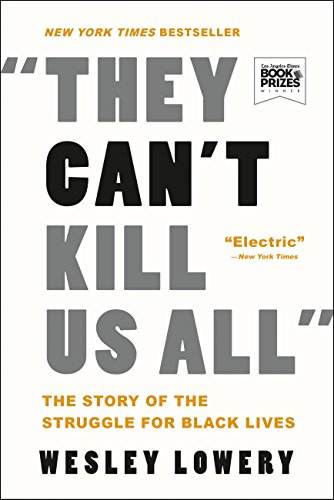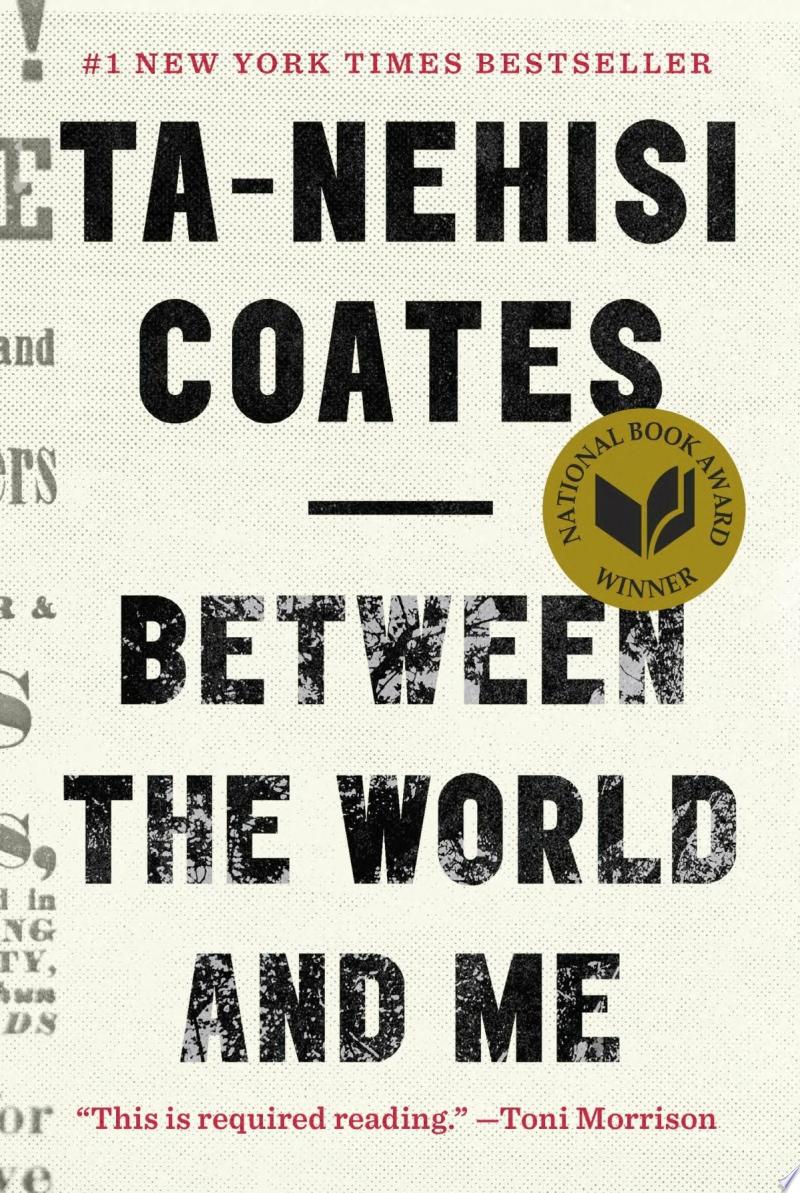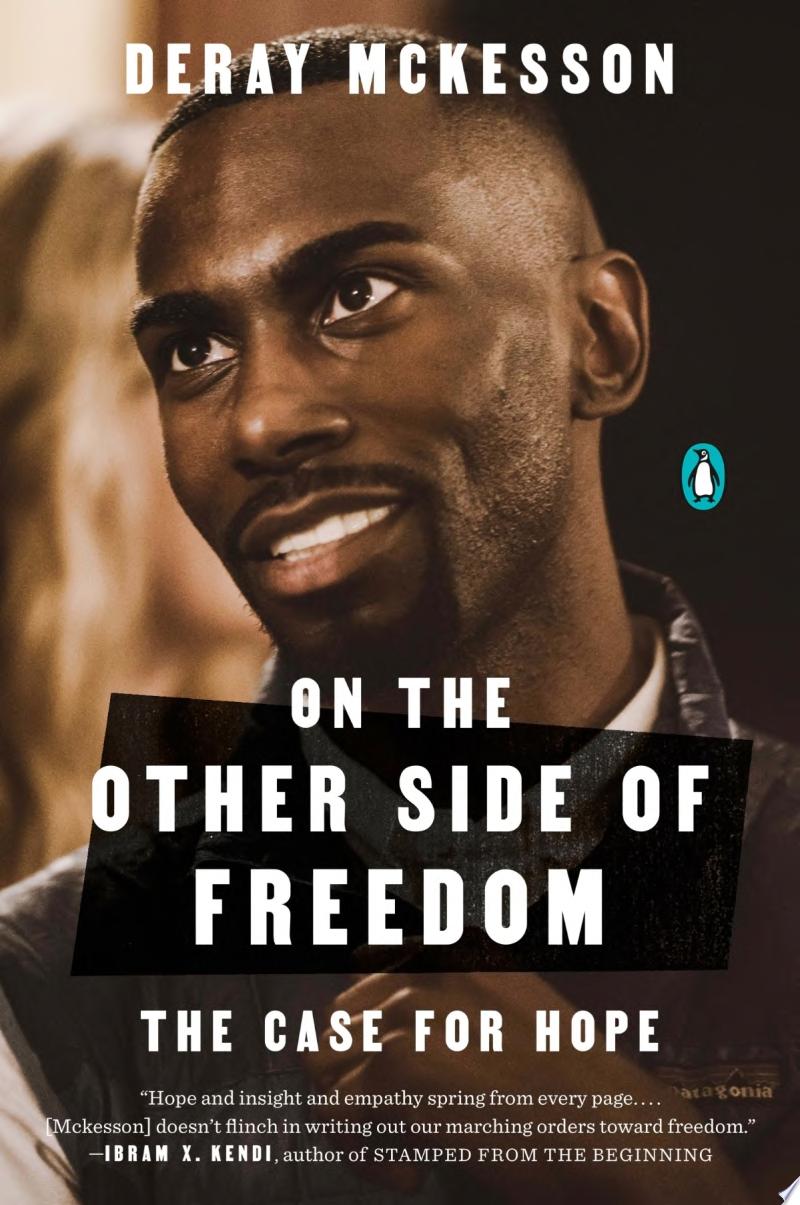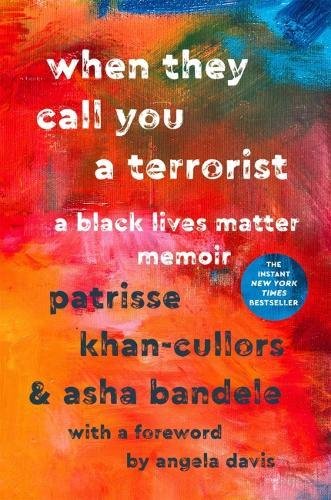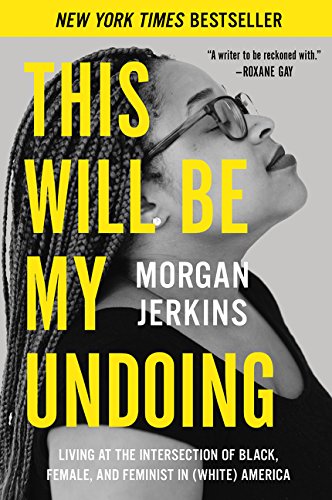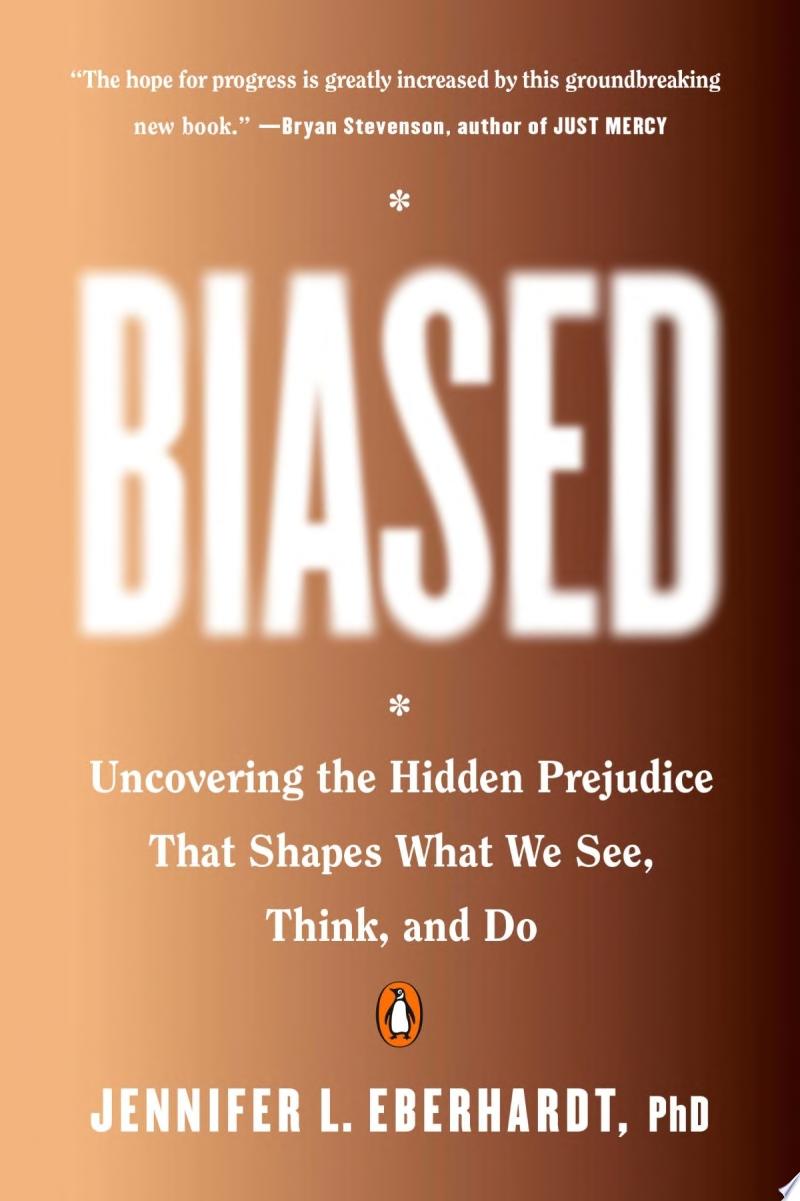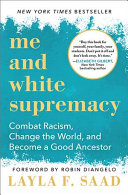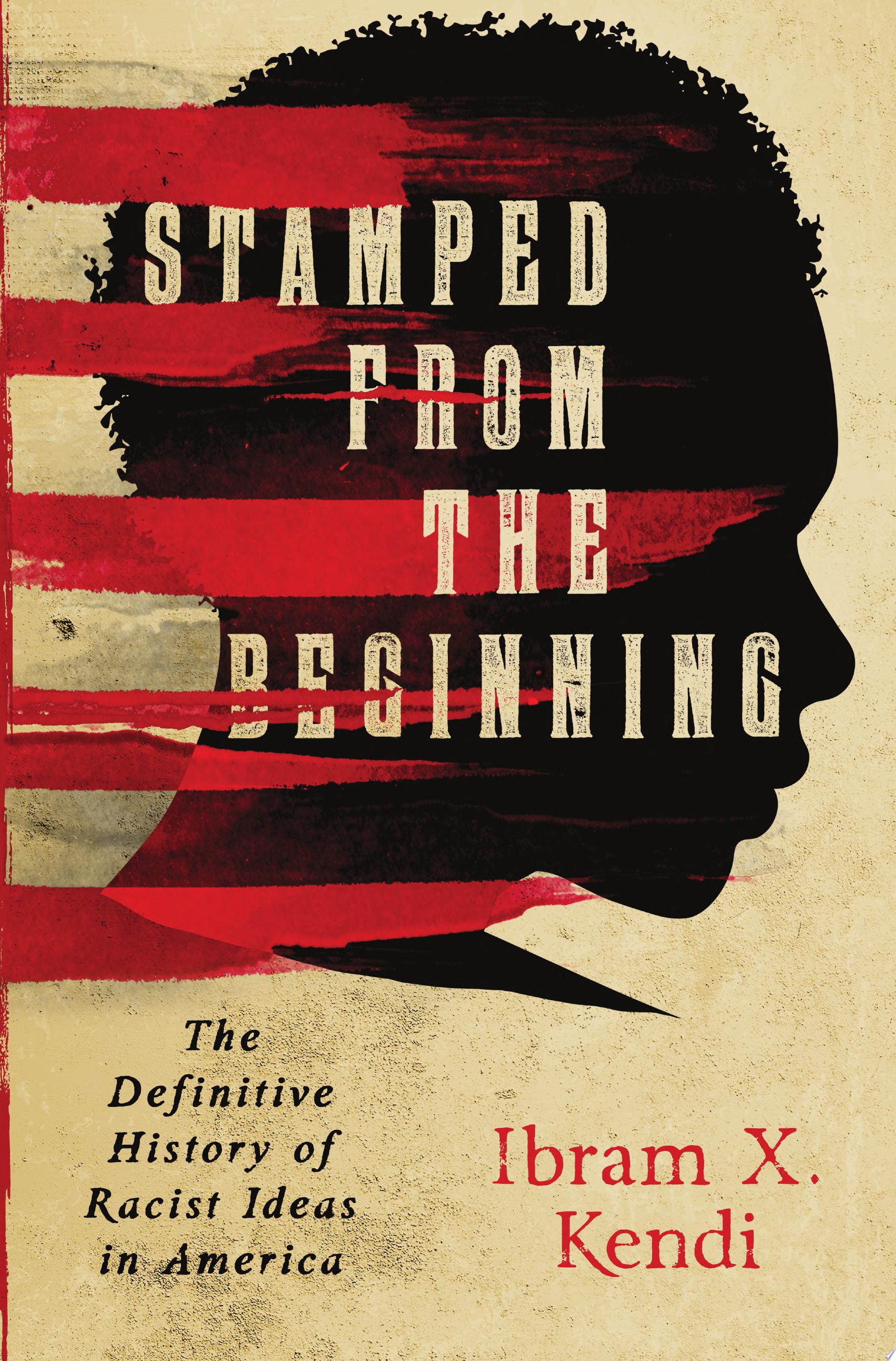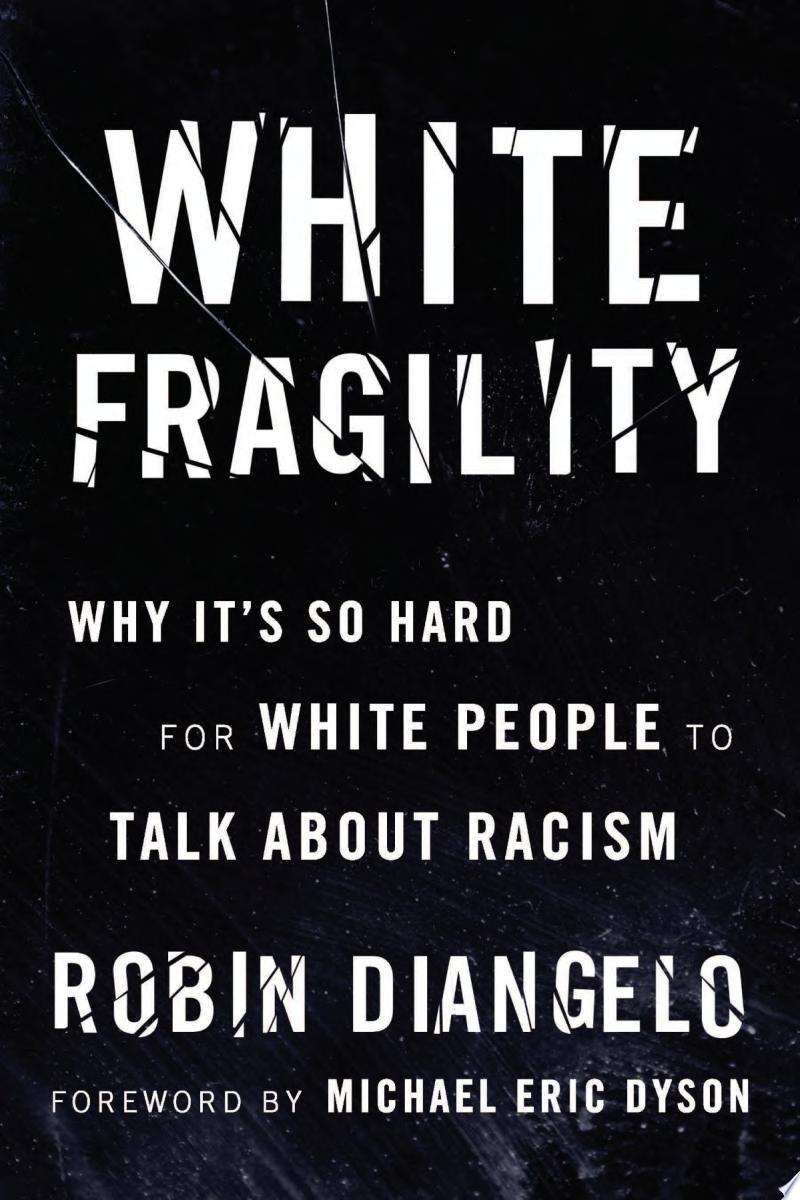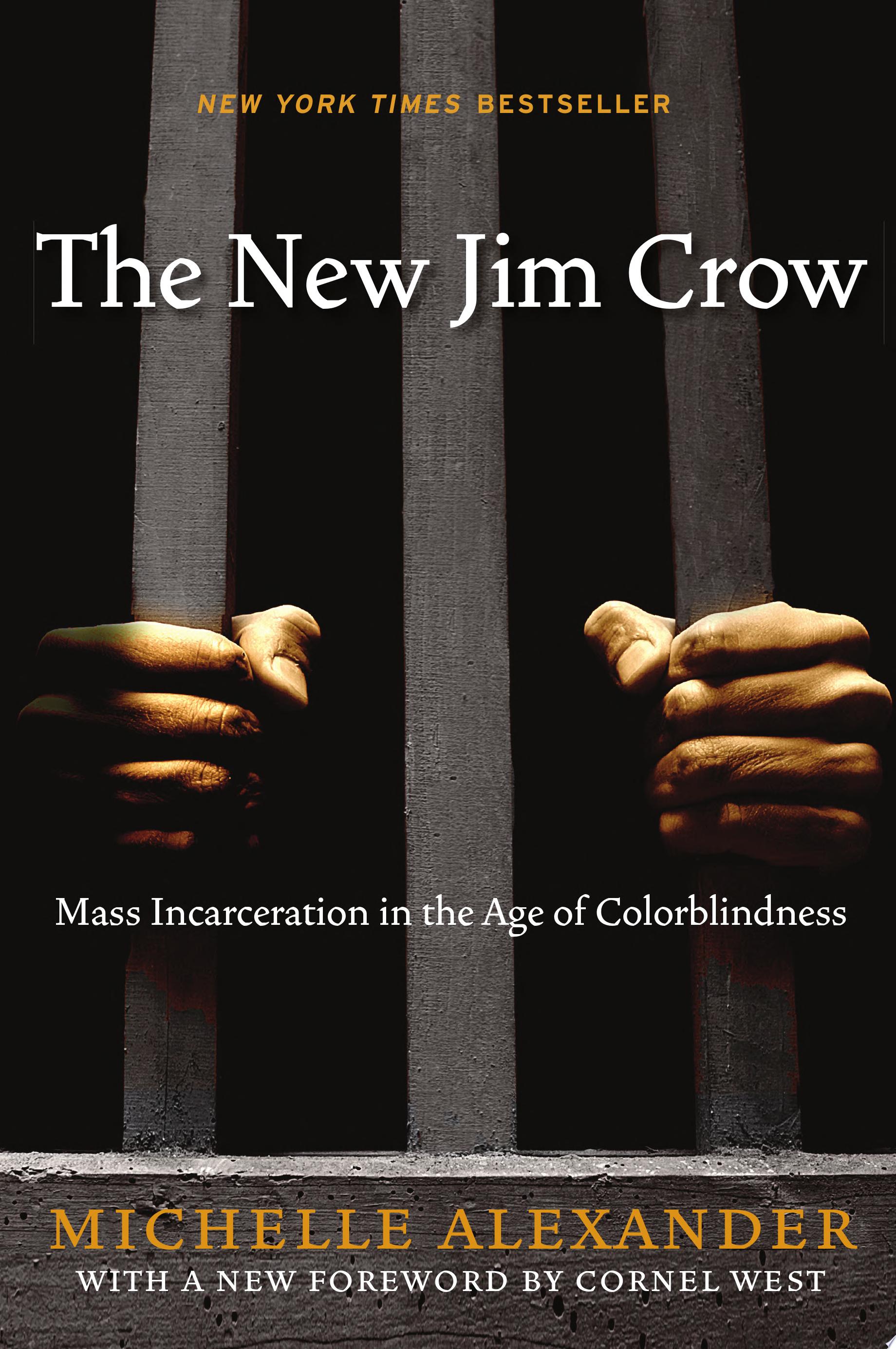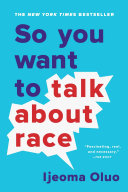List
American Whitelash
Wesley Lowery
NEW YORK TIMES BESTSELLER
"American Whitelash is indispensable. Really. It is." -- Ibram X. Kendi, author of How to Be an Antiracist
Pulitzer Prize-winning journalist Wesley Lowery confronts the sickness at the heart of American society: the cyclical pattern of violence that has marred every moment of racial progress in this country, and whose bloodshed began anew following Obama's 2008 election.
In 2008, Barack Obama's historic victory was heralded as a turning point for the country. And so it would be--just not in the way that most Americans hoped. The election of the nation's first Black president fanned long-burning embers of white supremacy, igniting a new and frightening phase in a historical American cycle of racial progress and white backlash.
In American Whitelash, Pulitzer Prize-winning journalist and best-selling author Wesley Lowery charts the return of this blood-stained trend, showing how the forces of white power retaliated against Obama's victory--and both profited from, and helped to propel, the rise of Donald Trump. Interweaving deep historical analysis with gripping firsthand reporting on both victims and perpetrators of violence, Lowery uncovers how this vicious cycle is carrying us into ever more perilous territory, how the federal government has failed to intervene, and how we still might find a route of escape.
Seen and Unseen
Marc Lamont Hill
A riveting exploration of how the power of visual media over the last few years has shifted the narrative on race and reignited the push towards justice by the author of the “worthy and necessary” (The New York Times) Nobody Marc Lamont Hill and the bestselling author and acclaimed journalist Todd Brewster.
With his signature “clear and courageous” (Cornel West) voice Marc Lamont Hill and New York Times bestselling author Todd Brewster weave four recent pivotal moments in America’s racial divide into their disturbing historical context—starting with the killing of George Floyd—Seen and Unseen reveals the connections between our current news headlines and social media feeds and the country’s long struggle against racism.
For most of American history, our media has reinforced and promoted racism. But with the immediacy of modern technology—the ubiquity of smartphones, social media, and the internet—that long history is now in flux. From the teenager who caught George Floyd’s killing on camera to the citizens who held prosecutors accountable for properly investigating the killing of Ahmaud Arbery, ordinary people are now able to reveal injustice in a more immediate way. As broad movements to overhaul policing, housing, and schooling gain new vitality, Seen and Unseen demonstrates that change starts with the raw evidence of those recording history on the front lines.
In the vein of The New Jim Crow and Caste, Seen and Unseen incisively explores what connects our moment to the history of race in America but also what makes today different from the civil rights movements of the past and what it will ultimately take to push social justice forward.
Created Equal
Ben Carson
Now a New York Times Bestseller!
Bestselling author and conservative icon Dr. Ben Carson lays out a hopeful and inspiring road map for how America can come together.
External physical characteristics that are genetically encoded are things over which no individual has control. But rather than appreciating the gift of diversity, some have chosen to use it to drive wedges between groups of people. Some of these external characteristics are associated with the past moral failing of slavery. Though slavery in America formally ended in the 1860s, the vestiges of that evil institution are still with us today, and those vestiges often inflict guilt on some and facilitate feelings of victimhood in others.
In Created Equal, Dr. Carson uses his own personal experiences as a member of a racial minority, along with the writings and experiences of others from multiple backgrounds and demographics, to analyze the current state of race relations in America. Instead of using race as an excuse to remake America into something completely antithetical to the Constitution, Dr. Carson suggests ways to enhance and bring great success to our nation and all multiethnic societies by magnifying America's incredible strengths instead of her historical weaknesses.
His Name Is George Floyd
Robert Samuels
'His Name Is George Floyd is essential for our times.' Ibram X. Kendi, author of How to Be an Antiracist
'An intimate, unvarnished and scrupulous account of his life...brilliantly revealing.' NEW YORK TIMES
You know how he died. This is how he lived.
Who was George Floyd? What did he hope for? What was life like for him? And why has his death been the catalyst for such a powerful global response?
The murder of George Floyd sparked a summer of activism and unrest all over the world in 2020, from Shetland to São Paolo, as people marched under the Black Lives Matter banner, demanding an end to racial injustice. But behind a face that would be graffitied onto countless murals, and a name that has become synonymous with civil rights, there is the reality of one man's stolen life.
In His Name is George Floyd we meet the kind young boy who talked his friends out of beating up a skinny kid from another neighbourhood and then befriended him on the walk home. Big Floyd the high school American football player who ignored his coach's pleas to be more aggressive and felt queasy at the sight of blood. The man who fell victim to an opioid epidemic we are only just beginning to understand. The sensitive son and loving father, constantly in search of a better life in a society determined to write him off based on things he had no control over: where he grew up, the size of his body and the colour of his skin.
Drawing upon hundreds of interviews with friends and family members, His Name Is George Floyd reveals the myriad ways that structural racism shaped Floyd's life and death - from his forebears' roots in slavery to an underfunded education, the overpolicing of his community and the devastating snare of the prison system. By offering us an intimate portrait of this one, emblematic life, Robert Samuels and Toluse Olorunnipa deliver a powerful and moving exploration of how a man who simply wanted to breathe ended up touching the world.
How to Raise an Antiracist
Ibram X. Kendi
NEW YORK TIMES BESTSELLER • The book that every parent, caregiver, and teacher needs to raise the next generation of antiracist thinkers, from the author of How to Be an Antiracist and recipient of the MacArthur “Genius” Grant.
“Kendi’s latest . . . combines his personal experience as a parent with his scholarly expertise in showing how racism affects every step of a child’s life. . . . Like all his books, this one is accessible to everyone regardless of race or class.”—Los Angeles Times (Book Club Pick)
The tragedies and reckonings around racism that are rocking the country have created a specific crisis for parents, educators, and other caregivers: How do we talk to our children about racism? How do we teach children to be antiracist? How are kids at different ages experiencing race? How are racist structures impacting children? How can we inspire our children to avoid our mistakes, to be better, to make the world better?
These are the questions Ibram X. Kendi found himself avoiding as he anticipated the birth of his first child. Like most parents or parents-to-be, he felt the reflex to not talk to his child about racism, which he feared would stain her innocence and steal away her joy. But research and experience changed his mind, and he realized that raising his child to be antiracist would actually protect his child, and preserve her innocence and joy. He realized that teaching students about the reality of racism and the myth of race provides a protective education in our diverse and unequal world. He realized that building antiracist societies safeguards all children from the harms of racism.
Following the accessible genre of his internationally bestselling How to Be an Antiracist, Kendi combines a century of scientific research with a vulnerable and compelling personal narrative of his own journey as a parent and as a child in school. The chapters follow the stages of child development from pregnancy to toddler to schoolkid to teenager. It is never too early or late to start raising young people to be antiracist.
We Should All be Feminists
Chimamanda Ngozi Adichie
The highly acclaimed, provocative New York Times bestseller from the award-winning author of Americanah.
In this personal, eloquently-argued essay--adapted from the much-admired TEDx talk of the same name--Chimamanda Ngozi Adichie offers readers a unique definition of feminism for the twenty-first century, one rooted in inclusion and awareness. Drawing extensively on her own experiences and her deep understanding of the often masked realities of sexual politics, here is one remarkable author's exploration of what it means to be a woman now--and an of-the-moment rallying cry for why we should all be feminists.
Stony the Road
Henry Louis Gates, Jr.
A profound new rendering of the struggle by African-Americans for equality after the Civil War and the violent counter-revolution that resubjugated them, as seen through the prism of the war of images and ideas that have left an enduring racist stain on the American mind.
The abolition of slavery in the aftermath of the Civil War is a familiar story, as is the civil rights revolution that transformed the nation after World War II. But the century in between remains a mystery: if emancipation sparked "a new birth of freedom" in Lincoln's America, why was it necessary to march in Martin Luther King, Jr.'s America? In this new book, Henry Louis Gates, Jr., one of our leading chroniclers of the African-American experience, seeks to answer that question in a history that moves from the Reconstruction Era to the "nadir" of the African-American experience under Jim Crow, through to World War I and the Harlem Renaissance.
Through his close reading of the visual culture of this tragic era, Gates reveals the many faces of Jim Crow and how, together, they reinforced a stark color line between white and black Americans. Bringing a lifetime of wisdom to bear as a scholar, filmmaker, and public intellectual, Gates uncovers the roots of structural racism in our own time, while showing how African Americans after slavery combatted it by articulating a vision of a "New Negro" to force the nation to recognize their humanity and unique contributions to America as it hurtled toward the modern age.
The story Gates tells begins with great hope, with the Emancipation Proclamation, Union victory, and the liberation of nearly 4 million enslaved African-Americans. Until 1877, the federal government, goaded by the activism of Frederick Douglass and many others, tried at various turns to sustain their new rights. But the terror unleashed by white paramilitary groups in the former Confederacy, combined with deteriorating economic conditions and a loss of Northern will, restored "home rule" to the South. The retreat from Reconstruction was followed by one of the most violent periods in our history, with thousands of black people murdered or lynched and many more afflicted by the degrading impositions of Jim Crow segregation.
An essential tour through one of America's fundamental historical tragedies, Stony the Road is also a story of heroic resistance, as figures such as W. E. B. Du Bois and Ida B. Wells fought to create a counter-narrative, and culture, inside the lion's mouth. As sobering as this tale is, it also has within it the inspiration that comes with encountering the hopes our ancestors advanced against the longest odds.
They Can't Kill Us All
Wesley Lowery
A deeply reported book that brings alive the quest for justice in the deaths of Michael Brown, Tamir Rice, and Freddie Gray, offering both unparalleled insight into the reality of police violence in America and an intimate, moving portrait of those working to end it.
Conducting hundreds of interviews during the course of over one year reporting on the ground, Washington Post writer Wesley Lowery traveled from Ferguson, Missouri, to Cleveland, Ohio; Charleston, South Carolina; and Baltimore, Maryland; and then back to Ferguson to uncover life inside the most heavily policed, if otherwise neglected, corners of America today.
In an effort to grasp the magnitude of the repose to Michael Brown's death and understand the scale of the problem police violence represents, Lowery speaks to Brown's family and the families of other victims other victims' families as well as local activists. By posing the question, "What does the loss of any one life mean to the rest of the nation?" Lowery examines the cumulative effect of decades of racially biased policing in segregated neighborhoods with failing schools, crumbling infrastructure and too few jobs.
Studded with moments of joy, and tragedy, They Can't Kill Us All offers a historically informed look at the standoff between the police and those they are sworn to protect, showing that civil unrest is just one tool of resistance in the broader struggle for justice. As Lowery brings vividly to life, the protests against police killings are also about the black community's long history on the receiving end of perceived and actual acts of injustice and discrimination.
They Can't Kill Us All grapples with a persistent if also largely unexamined aspect of the otherwise transformative presidency of Barack Obama: the failure to deliver tangible security and opportunity to those Americans most in need of both.
Between the World and Me
Ta-Nehisi Coates
#1 NEW YORK TIMES BESTSELLER * NATIONAL BOOK AWARD WINNER * NAMED ONE OF TIME'S TEN BEST NONFICTION BOOKS OF THE DECADE * PULITZER PRIZE FINALIST * NATIONAL BOOK CRITICS CIRCLE AWARD FINALIST
In a profound work that pivots from the biggest questions about American history and ideals to the most intimate concerns of a father for his son, Ta-Nehisi Coates offers a powerful new framework for understanding our nation's history and current crisis. Americans have built an empire on the idea of "race," a falsehood that damages us all but falls most heavily on the bodies of black women and men--bodies exploited through slavery and segregation, and, today, threatened, locked up, and murdered out of all proportion. What is it like to inhabit a black body and find a way to live within it? And how can we all honestly reckon with this fraught history and free ourselves from its burden?
Between the World and Me is Ta-Nehisi Coates's attempt to answer these questions in a letter to his adolescent son. Coates shares with his son--and readers--the story of his awakening to the truth about his place in the world through a series of revelatory experiences, from Howard University to Civil War battlefields, from the South Side of Chicago to Paris, from his childhood home to the living rooms of mothers whose children's lives were taken as American plunder. Beautifully woven from personal narrative, reimagined history, and fresh, emotionally charged reportage, Between the World and Me clearly illuminates the past, bracingly confronts our present, and offers a transcendent vision for a way forward.
On the Other Side of Freedom
DeRay Mckesson
From the internationally recognized civil rights activist/organizer and host of the podcast Pod Save the People, a meditation on resistance, justice, and freedom, and an intimate portrait of a movement from the front lines.
In August 2014, twenty-nine-year-old activist DeRay Mckesson stood with hundreds of others on the streets of Ferguson, Missouri, to push a message of justice and accountability. These protests, and others like them in cities across the country, resulted in the birth of the Black Lives Matter movement. Now, in his first book, Mckesson lays down the intellectual, pragmatic, and political framework for a new liberation movement. Continuing a conversation about activism, resistance, and justice that embraces our nation's complex history, he dissects how deliberate oppression persists, how racial injustice strips our lives of promise, and how technology has added a new dimension to mass action and social change. He argues that our best efforts to combat injustice have been stunted by the belief that racism's wounds are history, and suggests that intellectual purity has curtailed optimistic realism. The book offers a new framework and language for understanding the nature of oppression. With it, we can begin charting a course to dismantle the obvious and subtle structures that limit freedom.
Honest, courageous, and imaginative, On the Other Side of Freedom is a work brimming with hope. Drawing from his own experiences as an activist, organizer, educator, and public official, Mckesson exhorts all Americans to work to dismantle the legacy of racism and to imagine the best of what is possible. Honoring the voices of a new generation of activists, On the Other Side of Freedom is a visionary's call to take responsibility for imagining, and then building, the world we want to live in.
When They Call You a Terrorist
Patrisse Khan-Cullors
A poetic and powerful memoir about what it means to be a Black woman in America—and the co-founding of a movement that demands justice for all in the land of the free.
Raised by a single mother in an impoverished neighborhood in Los Angeles, Patrisse Khan-Cullors experienced firsthand the prejudice and persecution Black Americans endure at the hands of law enforcement. For Patrisse, the most vulnerable people in the country are Black people. Deliberately and ruthlessly targeted by a criminal justice system serving a white privilege agenda, Black people are subjected to unjustifiable racial profiling and police brutality. In 2013, when Trayvon Martin’s killer went free, Patrisse’s outrage led her to co-found Black Lives Matter with Alicia Garza and Opal Tometi.
Condemned as terrorists and as a threat to America, these loving women founded a hashtag that birthed the movement to demand accountability from the authorities who continually turn a blind eye to the injustices inflicted upon people of Black and Brown skin.
Championing human rights in the face of violent racism, Patrisse is a survivor. She transformed her personal pain into political power, giving voice to a people suffering inequality and a movement fueled by her strength and love to tell the country—and the world—that Black Lives Matter.
When They Call You a Terrorist is Patrisse Khan-Cullors and asha bandele’s reflection on humanity. It is an empowering account of survival, strength and resilience and a call to action to change the culture that declares innocent Black life expendable.
THE INSTANT NEW YORK TIMES BESTSELLER.
New York Times Editor’s Pick.
Library Journal Best Books of 2019.
TIME Magazine's "Best Memoirs of 2018 So Far."
O, Oprah’s Magazine’s “10 Titles to Pick Up Now.”
Politics & Current Events 2018 O.W.L. Book Awards Winner
The Root Best of 2018
"This remarkable book reveals what inspired Patrisse's visionary and courageous activism and forces us to face the consequence of the choices our nation made when we criminalized a generation. This book is a must-read for all of us." - Michelle Alexander, New York Times bestselling author of The New Jim Crow
This Will Be My Undoing
Morgan Jerkins
From one of the fiercest critics writing today, Morgan Jerkins’ highly-anticipated collection of linked essays interweaves her incisive commentary on pop culture, feminism, black history, misogyny, and racism with her own experiences to confront the very real challenges of being a black woman today—perfect for fans of Roxane Gay’s Bad Feminist, Rebecca Solnit’s Men Explain Things to Me, and Chimamanda Ngozie Adichie’s We Should All Be Feminists.
Morgan Jerkins is only in her twenties, but she has already established herself as an insightful, brutally honest writer who isn’t afraid of tackling tough, controversial subjects. In This Will Be My Undoing, she takes on perhaps one of the most provocative contemporary topics: What does it mean to “be”—to live as, to exist as—a black woman today? This is a book about black women, but it’s necessary reading for all Americans.
Doubly disenfranchised by race and gender, often deprived of a place within the mostly white mainstream feminist movement, black women are objectified, silenced, and marginalized with devastating consequences, in ways both obvious and subtle, that are rarely acknowledged in our country’s larger discussion about inequality. In This Will Be My Undoing, Jerkins becomes both narrator and subject to expose the social, cultural, and historical story of black female oppression that influences the black community as well as the white, male-dominated world at large.
Whether she’s writing about Sailor Moon; Rachel Dolezal; the stigma of therapy; her complex relationship with her own physical body; the pain of dating when men say they don’t “see color”; being a black visitor in Russia; the specter of “the fast-tailed girl” and the paradox of black female sexuality; or disabled black women in the context of the “Black Girl Magic” movement, Jerkins is compelling and revelatory.
Biased
Jennifer L. Eberhardt
From one of the world's leading experts on unconscious racial bias come stories, science, and strategies to address one of the central controversies of our time
How do we talk about bias? How do we address racial disparities and inequities? What role do our institutions play in creating, maintaining, and magnifying those inequities? What role do we play? With a perspective that is at once scientific, investigative, and informed by personal experience, Dr. Jennifer Eberhardt offers us the language and courage we need to face one of the biggest and most troubling issues of our time. She exposes racial bias at all levels of society--in our neighborhoods, schools, workplaces, and criminal justice system. Yet she also offers us tools to address it. Eberhardt shows us how we can be vulnerable to bias but not doomed to live under its grip. Racial bias is a problem that we all have a role to play in solving.
Me and White Supremacy
Layla F Saad
The New York Times and USA Today bestseller!
"Layla Saad is one of the most important and valuable teachers we have right now on the subject of white supremacy and racial injustice."--New York Timesbestselling author Elizabeth Gilbert
Based on the viral Instagram challenge that captivated participants worldwide, Me and White Supremacytakes readers on a 28-day journey of how to dismantle the privilege within themselves so that they can stop (often unconsciously) inflicting damage on people of color, and in turn, help other white people do better, too.
When Layla Saad began an Instagram challenge called #meandwhitesupremacy, she never predicted it would spread as widely as it did. She encouraged people to own up and share their racist behaviors, big and small. She was looking for truth, and she got it. Thousands of people participated in the challenge, and nearly 100,000 people downloaded the Me and White Supremacy Workbook.
Updated and expanded from the original workbook, Me and White Supremacy,takes the work deeper by adding more historical and cultural contexts, sharing moving stories and anecdotes, and including expanded definitions, examples, and further resources.
Awareness leads to action, and action leads to change.The numbers show that readers are ready to do this work--let's give it to them.
Stamped from the Beginning
Ibram X. Kendi
The National Book Award winning history of how racist ideas were created, spread, and deeply rooted in American society. Some Americans insist that we're living in a post-racial society. But racist thought is not just alive and well in America--it is more sophisticated and more insidious than ever. And as award-winning historian Ibram X. Kendi argues, racist ideas have a long and lingering history, one in which nearly every great American thinker is complicit.
In this deeply researched and fast-moving narrative, Kendi chronicles the entire story of anti-black racist ideas and their staggering power over the course of American history. He uses the life stories of five major American intellectuals to drive this history: Puritan minister Cotton Mather, Thomas Jefferson, abolitionist William Lloyd Garrison, W.E.B. Du Bois, and legendary activist Angela Davis.
As Kendi shows, racist ideas did not arise from ignorance or hatred. They were created to justify and rationalize deeply entrenched discriminatory policies and the nation's racial inequities.
In shedding light on this history, Stamped from the Beginning offers us the tools we need to expose racist thinking. In the process, he gives us reason to hope.
- Winner of the 2016 National Book Award for Nonfiction
- A New York Times Bestseller
- A Washington Post Bestseller
- On President Obama's Black History Month Recommended Reading List
- Finalist for the 2016 National Book Critics Circle Award for Nonfiction
- Named one of the Best Books of the Year by the Boston Globe, Washington Post, Chicago Review of Books, The Root, Buzzfeed, Bustle, and Entropy
White Fragility
Robin J. DiAngelo
The New York Times best-selling book exploring the counterproductive reactions white people have when their assumptions about race are challenged, and how these reactions maintain racial inequality.
In this "vital, necessary, and beautiful book" (Michael Eric Dyson), antiracist educator Robin DiAngelo deftly illuminates the phenomenon of white fragility and "allows us to understand racism as a practice not restricted to 'bad people' (Claudia Rankine). Referring to the defensive moves that white people make when challenged racially, white fragility is characterized by emotions such as anger, fear, and guilt, and by behaviors including argumentation and silence. These behaviors, in turn, function to reinstate white racial equilibrium and prevent any meaningful cross-racial dialogue. In this in-depth exploration, DiAngelo examines how white fragility develops, how it protects racial inequality, and what we can do to engage more constructively.
The New Jim Crow
Michelle Alexander
Once in a great while a book comes along that changes the way we see the world and helps to fuel a nationwide social movement. The New Jim Crow is such a book. Praised by Harvard Law professor Lani Guinier as "brave and bold," this book directly challenges the notion that the election of Barack Obama signals a new era of colorblindness. With dazzling candor, legal scholar Michelle Alexander argues that "we have not ended racial caste in America; we have merely redesigned it." By targeting black men through the War on Drugs and decimating communities of color, the U.S. criminal justice system functions as a contemporary system of racial control—relegating millions to a permanent second-class status—even as it formally adheres to the principle of colorblindness. In the words of Benjamin Todd Jealous, president and CEO of the NAACP, this book is a "call to action."
Called "stunning" by Pulitzer Prize–winning historian David Levering Lewis, "invaluable" by the Daily Kos, "explosive" by Kirkus, and "profoundly necessary" by the Miami Herald, this updated and revised paperback edition of The New Jim Crow, now with a foreword by Cornel West, is a must-read for all people of conscience.
So You Want to Talk About Race
Ijeoma Oluo
In this New York Times bestseller, Ijeoma Oluo offers a hard-hitting but user-friendly examination of race in America
Widespread reporting on aspects of white supremacy--from police brutality to the mass incarceration of Black Americans--has put a media spotlight on racism in our society. Still, it is a difficult subject to talk about. How do you tell your roommate her jokes are racist? Why did your sister-in-law take umbrage when you asked to touch her hair--and how do you make it right? How do you explain white privilege to your white, privileged friend?
In So You Want to Talk About Race, Ijeoma Oluo guides readers of all races through subjects ranging from intersectionality and affirmative action to "model minorities" in an attempt to make the seemingly impossible possible: honest conversations about race and racism, and how they infect almost every aspect of American life.
"Oluo gives us--both white people and people of color--that language to engage in clear, constructive, and confident dialogue with each other about how to deal with racial prejudices and biases."--National Book Review
"Generous and empathetic, yet usefully blunt . . . it's for anyone who wants to be smarter and more empathetic about matters of race and engage in more productive anti-racist action."--Salon (Required Reading)
